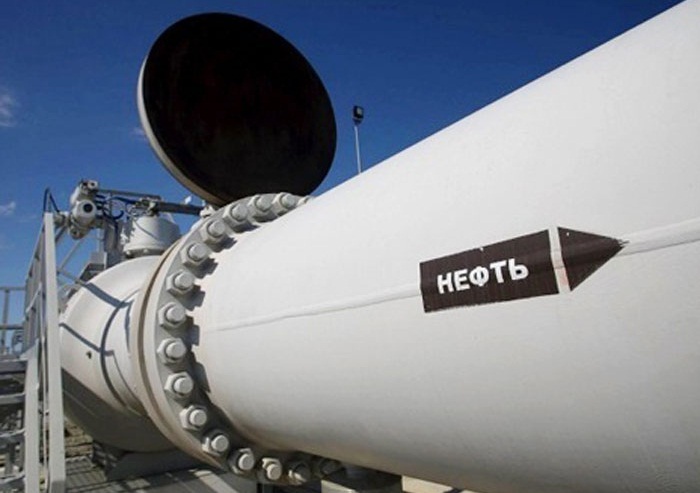CPC still counts on Kazakhstan’s oil exports

CPC executives hope that Kazakhstan will continue its oil exports via Russia/Kursiv.Media
The Caspian Pipeline Consortium (CPC) doesn’t see any risks in Kazakhstan’s intention to build alternative routes to circumvent Russia and CPC, according to Kairgeldy Kabyldin, who is responsible for government relations in CPC-K, a subsidiary of the CPC.
«Concerning alternative routes for CPC, of course, there are such projects but you know what – it is a very difficult task to build an alternative route for oil exports. Kazakhstan is a landlocked country. Therefore, we need to send our oil through the territory of other countries to get to the seashore. And there are loads of transit risks here. I mean, any route would be costly and would require guarantees from third parties. By now, there are no oil fields in Kazakhstan that could justify any expenses associated with the design or construction of a new pipeline. The CPC can transport all volumes of oil we have,» he said during a press conference in Atyrau.
Kabyldin also noted that CPC is an international project and the U.S. State Department has officially notified its stakeholders that U.S. sanctions won’t hit the pipeline. In 2022, Kazakhstan accounted for 52.2 million tons of oil out of 58.7 million tons exported via CPC. According to Kabyldin, there will be no alternative to this pipeline any time soon.
However, he agrees that the country needs alternative routes, including the Transcaspian route through the Caspian Sea and Azerbaijan to Europe, as President Kassym-Jomart Tokayev talked about recently. Kazakhstan also has a system of pipelines toward China that transport about 15 million tons of oil, including 10 million tons of Russian hydrocarbon products that go to China through Kazakhstan.
«The Persian Gulf is another interesting direction but it’s too risky, while Iran, as everybody knows, is under international sanctions. Concerning the Caspian route, there are tons of issues that must be negotiated with partners (Azerbaijan, Georgia and Turkey). If we are going to build such an alternative route we have to make arrangements with the governments of other countries beforehand and sign agreements with investors. This is a big task,» Kabyldin highlighted.
According to the deputy head of CPC-K, the Baku-Tbilisi-Ceyhan pipeline is capable of transporting three million tons of Kazakhstani oil. However, he noted that the pipeline has serious limitations for oil from Tengiz as it contains a lot of sulfur and can decrease the quality of Azerbaijani oil, which goes by the same pipeline. Kabyldin believes that all those new routes as well as routes via Makhachkala, Samara, Batumi and Baku will be necessary only for new oil that has never been exported via CPC.
«The key oil fields in Kazakhstan Tengiz, Karachaganak and Kashagan have a certain capacity and they export their oil via CPC in which they hold stakes. In other words, if Kazakhstan wants to send additional oil toward China or Azerbaijan, it will need more oil,» he said.
This year for the first time, Kazakhstan has circumvented Russia during some of its oil export. Inpex North Caspian Sea Ltd., which controls a 7.563% share in the North Caspian Operating Company (NCOC), the Kashagan oil field operator, sent 7,000 tons of its oil to the port of Aktau and further to the BTC pipeline to test this route. In 2023, the company is going to export about 1.5 million tons of Tengiz oil via this route. The BTC is expected to export 150,000 tons of Kazakshtani oil in April. Even though the port of Ceyhan suspended its operation because of the earthquake in February, its work was restarted in March.
Previously, almost all oil from the biggest oil fields in Kazakhstan was exported via CPC. Now, a part of it is transported to the port of Aktau by railway and then by sea to Baku, where it goes to the BTC pipeline. Railway transportation of Kazakhstani oil to the port of Batumi, Georgia is another route. According to KazTransOil, the national oil pipeline company in Kazakhstan, about 3.5 million tons of oil will be exported via the port of Aktau this year, although its technical capacity is 6.2 million tons.
In 2022, CPC exported 58.7 million tons of oil (a 3.3% decline compared to 2021), including 52.2 million tons from Kazakhstan, thanks to Tengiz (29 million tons), Kashagan (12 million tons) and Karachaganak (10 million tons). To deliver this oil from the port of Novorossiysk, the final destination of CPC, to consumers worldwide, 527 tankers were needed. The consortium is going to increase its exports this year.
In 2021, the pipeline exported 60.73 million tons of oil, including hydrocarbons from Tengiz (26.58 million tons), Kashagan (15.74 million tons) and Karachaganak (10.29 million tons).
With a length of 1,511 kilometers, the CPC pipeline stretches from Tengiz to Novorossiysk. The pipeline accounts for 2/3 of all Kazakhstani oil exports, although it also exports Russian oil from several fields along the Caspian Sea. The sea terminal of CPC has three tanker loading units that allow the company to export oil even during bad weather.
Among the pipeline’s shareholders are Russian Transheft (24%), CPC Company (7%), KazMunayGas (19%), Kazakhstan Pipeline Ventures LLC (1.75%), Chevron Caspian Pipeline Consortium Company (15%), LUKARCO B.V. (12.5%), Mobil Caspian Pipeline Company (7.5%), Rosneft-Shell Caspian Ventures Limited (7.5%), BG Overseas Holdings Limited (2%), Eni International N.A. N.V. S.ar.l. (2%) and Oryx Caspian Pipeline LLC (1.75%).

